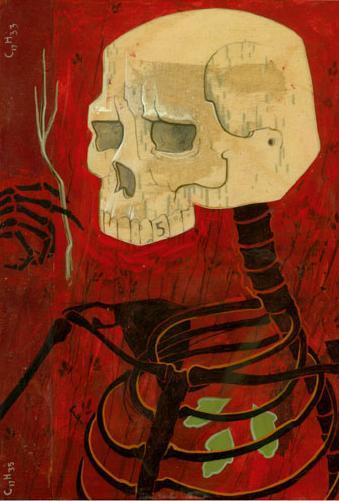 Late Registration
Late Registration, by Kayne West, is an album that I will, inevitably buy or rip from one of my black friends. I thoroughly enjoyed his last effort, The College Dropout, as it provided a great fuel-for-the-fire moment when I got rejected from Cambridge University and decided that academia is a load of bollocks. I also enjoyed it in ways that most everyone else did: the beats were catchy, the lyrics were sly, and the overreaching concept was holistic. Dope.
So it's with some trepidation that I approach the sophomore effort. In the two years since, my appreciation of pop-rap has waned a bit in favor of the London gutterpunks and American Indie acts. Such is the fate of a subscriber to
emusic. Not that i don't follow a trend every once in a while, but i typically wait for the buzz to get killed. And before the buzz dies down--and before I actually hear the album--I'd like to review what's been said so far, and how this might play into my future experience.
Where to start? Well, I usually start with whatever
Pitchfork tells me. Their review of Late Registration is typical of the scene, and begins by discussing what almost every review I've read (and even a
meta-review like this one) leads off with: The Ego. "Contrary to public opinion, hubris does have a righteous appeal." Judging from the 9.5 score on the meter, it doesn't sound as if PF has problem with arrogance. As many reviewers pointed out, bragging is an important element of the rap game.
Rolling Stone has similar praises for the egoism: "If anything, Kanye is too modest." Some reviews are a bit broader with their praise; the
LA Times focusses on the album itself, and goes through a laundry list of the highlights, from the 1st single, "Diamonds of Sierra Leone" to the more personal "Hey Mama." Some reviews suggest that perhaps the ego effect is a little more subtle, as Jon Pareles in the
NYT writes that Kanye "tries not to gloat, but he can't resist. He's no longer the underdog."
So how do i interpret these reviews into something that i'm ready for. My only personal experience with this album, besides the reviewing and the writing about reviewing, was in a subway station. The last week i was in London, before my trip back to the states, i decided to buy a week-long Tube pass. I don't normally ride the tube, mostly because it's too expensive, but also because i don't like the idea of being underground for extended periods of time. This had
obvious advantages.
Anyway, on my last day in London I rode home to the Kensington tube station, which exists out right in front of Harrod's, the department store of the gods. I don't need to tell about how living near there helped me develop a rich and caustic anger at the overly affluent, suffice it to say that I'm a communist now. After exiting the tube carriage, and walking up the escalator, I see a poster for Kanye's new album: cudly bear in a dinner jacket, huge eyes looking out, against a black background. I didn't see this poster anywhere else, though i'm sure it was plastered in every Shoreditch fence and phonepost. But for me, seeing the poster at the entrance to the center of affluent comerce in a city driven by the idea of money, well it sort of lets me know that this is a Production, musically, commercially, and aethetically. The Product is the New Rap. All the glamour, five times the beats, and no cheese.
Then again, i haven't even heard it.
 This is totally sweet!
This is totally sweet!



